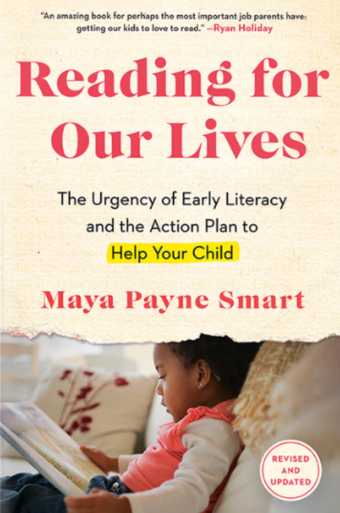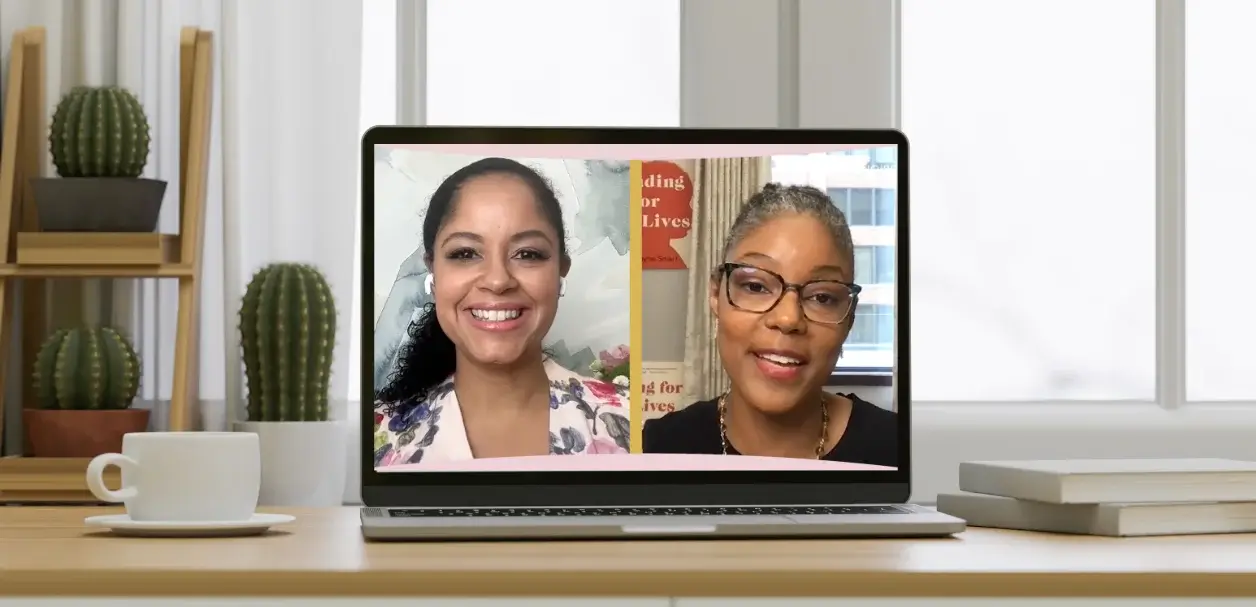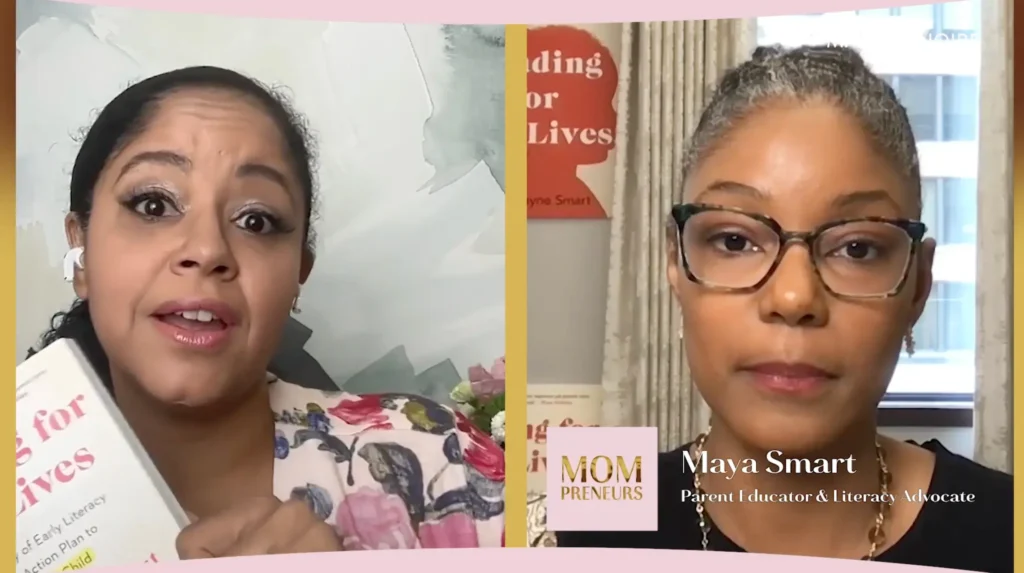It was my pleasure to join Nancy Redd on her Mompreneurs podcast recently to talk about my journey as a mom, entrepreneur, and author of Reading for Our Lives. Our conversation emphasized one simple truth I want every parent to know: we are our children’s first and best teachers. Long before our kids set foot in a classroom, our voices, conversations, and shared stories lay the foundation for their reading success.
There’s no magic bullet for literacy. Instead, what your child really needs is you—your voice and your attention, across the days and years. The good news is that you don’t need fancy toys or expensive programs. Talking with your child from infancy (even before they can respond) and as they grow builds their vocabulary and strengthens their brain. Reading picture books, asking questions, and giving your child time to think and reply can turn everyday moments into literacy lessons. These simple, consistent interactions add up to something powerful over time.
Another point I shared is that we parents must not underestimate our influence on our children’s literacy, which shapes their whole academic experience and beyond. Schools and teachers matter deeply, but their work rests on the groundwork parents build at home. Whether it’s five minutes of story time, a playful chat in the car, or a mini ABC lesson over breakfast, each little interaction contributes to your child’s growth.
A few more takeaways from our conversation:
- Knowledge and comprehension fuel literacy. Learning to sound out words is essential, but kids must also know what the words mean. Without rich conversation and exposure to different ideas and experiences, they’ll lack the context to make sense of what they read.
- Reading and writing still matter in the tech age. Artificial intelligence and tech tools may smooth over weakness in reading and writing, there’s no substitute for being able to think independently and communicate effectively. Ask your child: Do they want to be the person who’s reliant on these tools, or the person who shapes them?
- When it comes to screen time, parents set the pace. If we’re always on our phones, kids see screens as the norm. Even more, we lose valuable opportunities to talk, respond, teach, and read to our children. To help your child, start by modeling balance yourself.
Watch our full conversation below. And if you’d like to dive deeper into the science behind these ideas—plus get practical tips for weaving them into your family life—I share more in my book, Reading for Our Lives. It’s a guide for parents who want to raise strong, confident readers, right from day one.
Get Reading for Our Lives: The Urgency of Early Literacy and the Action Plan to Help Your Child
Learn how to foster your child’s pre-reading and reading skills easily, affordably, and playfully in the time you’re already spending together.
Get Reading for Our Lives


